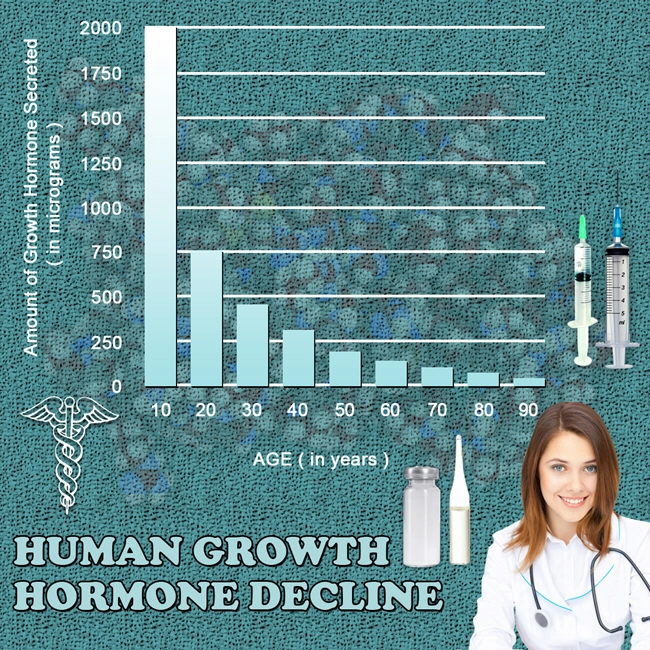
Video Link: https://vimeo.com/272034757
Video Download: Click Here To Download Video
Video Stream: Click Here To Stream Video
Video Link: https://vimeo.com/272034724
Video Download: Click Here To Download Video
Video Stream: Click Here To Stream Video
Stop the Chronic Inflammation epidemic dead in its tracks!
Keep reading and learn what you can do to avoid the damaging effects of this health-robber
The benefits of Human Growth Hormone (HGH) Replacement Therapy are well-known: increased vitality, better sleep, stress reduction, improved skin tone, fewer aches and pains, and a mood enhancement. But another lesser-known benefit of growth hormone is a reduction in inflammation since HGH gives the entire body a tune-up and allows each system in the body to function at its maximum efficiency.
Inflammation. As more medical research indicates, chronic inflammation seems to play a role in almost all diseases and illnesses. In fact, many insist that it performs the starring role in diabetes, cancer, autoimmune disease, heart attack, stroke, kidney disease, obesity, Alzheimer’s disease...the list goes on and on.
But Inflammation is a Two-Edged Sword

Before we go any further, let’s take a look at the definition of inflammation: the word itself comes from the Latin word “inflammo” which means “I set alight, I ignite.” Inflammation is the body’s first line of defense against injury.
For example, when you bleed, your immune system responds by using inflammation to send white blood cells racing to the wound.
They then release antibodies and destroy any harmful invaders. This release is why the area around the wound becomes warm, swollen, and reddish-colored. This kind of inflammation is called acute inflammation, also known as local inflammation.
This type of inflammation has three characteristics: it comes on quickly, stays in the injured area, and usually gets the job done.
Think about it. Without the protection of inflammation, you would not be able to withstand the slightest insult to your body. Inflammation plays a vital, life-saving role in your immune system’s constant battle to keep you healthy.
So What’s the Problem?
Good question! With local inflammation (the kind described above) there is no problem. However, there is another type of inflammation: chronic inflammation, also known as systemic inflammation. Chronic inflammation occurs when the inflammation response goes overboard when dealing with a small problem like a minor cut or burn.
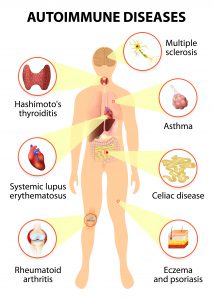 This inflammation overload is similar to using a sledgehammer to swat a fly. Once the invader is defeated, the inflammation has done its job and should retreat to await the next challenge. This process is what happens in a healthy body.
This inflammation overload is similar to using a sledgehammer to swat a fly. Once the invader is defeated, the inflammation has done its job and should retreat to await the next challenge. This process is what happens in a healthy body.
However, in the case of chronic inflammation, the chemicals used by the immune system continue to swarm in a feeding frenzy. They may commit treason and attack your body. This unfortunate turn of events is called an autoimmune disease.
But the autoimmune disease is far from the only consequence of chronic inflammation. Nearly every affliction, insignificant and dangerous, is a result of inflammation. Therefore, inflammation is something you need to be aware of and control.
What You Need to Do to Combat This Menace
Surprisingly, defeating the monster of inflammation is not overly burdensome or complicated. The first thing you can do to prevent inflammation is to maintain good dental hygiene. Gum disease can result in excess gum bacteria, which can then migrate into your heart’s vessels and travel directly into the heart itself. Once there, inflammation can cause a heart attack.
In ancient Yoga theory, the digestive system was considered “a second brain” and was treated as such. The importance of “the gut” cannot be overstated, and most inflammation usually originates there. The intestines contain a protein called zonulin which controls the crevices and openings in the intestinal lining. Zonulin monitors the entrance of nutrients into your bowels.
When levels of zonulin rise abnormally, they go into overdrive and allow these crevices to open haphazardly and allow tiny bits of food to enter directly into your bloodstream. The result? This undigested food is seen as an invader ready to cause damage.
As mentioned earlier, this causes...you guessed it...inflammation. This IS NOT the area that you want chronic inflammation to run wild. Undigested food creates a perfect environment for diseases such as Irritable Bowel Syndrome (IBS), Crohn’s disease, and celiac disease. These are all due to a “leaky gut syndrome” and inflammation.
To help prevent this from happening to you, watch what you put into your system. Processed, chemically-loaded foods, fast-foods, and excess alcohol are all things to minimize or avoid altogether.
By changing any bad eating habits you may have, your levels of c-reactive protein will drop off in a remarkably short period. This is a beneficial development  since c-reactive protein is a substance produced by the liver in response to inflammation. The lower its levels, the better.
since c-reactive protein is a substance produced by the liver in response to inflammation. The lower its levels, the better.
Don’t forget to keep your blood sugar levels from spiking. This means keeping your consumption of high glycemic foods to a minimum and considering adding blood sugar-controlling spices like cinnamon, garlic, and oregano to the mix.
Omega-6 fatty acids (found in many vegetable oils and non-organic, grain-fed poultry and cattle) and excess red meat intake are both known to increase inflammation. Stay aware of that fact.
Stress, both physical and mental, also contribute to digestive issues. A certain amount of stress is inevitable, but excess stress is debilitating.
To combat this problem, consider beginning a regular exercise routine and make getting a good night’s sleep a top priority. Also, consider meditation. Stress is, of course, impossible to completely erase, and that’s a good thing. Controlled stress can be beneficial. But problems arise when stress levels are off-the-charts.
Hormonal imbalances are yet another area that can affect the level of healthy bacteria in the gut.
Most people are familiar with probiotics and may try to keep their levels of “good” bacteria high by eating certain foods and taking probiotic supplements. 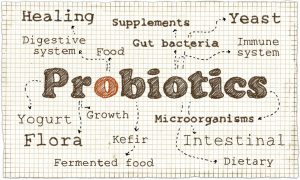 Fewer people are aware of prebiotics. That’s regrettable since prebiotics can play a massive role in digestive health.
Fewer people are aware of prebiotics. That’s regrettable since prebiotics can play a massive role in digestive health.
The Differences Between Probiotics and Prebiotics
Both of these substances are needed, and there are differences between the two. Probiotics are live bacteria found in certain foods and probiotic supplements. The problem with them is this: They are incredibly fragile -- the heat and acids in our body may destroy them before they can get to work.
Additionally, some people may not like the taste of foods that deliver probiotics (yogurt, sauerkraut, and other dairy products) and may not be taking probiotic supplements.
In contrast, prebiotics is particular plant fibers that provide beneficial nutrients directly to the "good" bacteria in the colon and large intestine. Prebiotics are far more durable than probiotics and thus can withstand the heat and acids that destroy probiotics.
 Another difference between the two: there are countless types of bacteria in our gut, and probiotics must battle them to deliver their benefits. By contrast, prebiotics can immediately home in on the beneficial bacteria that are already present and provide nourishment to these friendly bacteria.
Another difference between the two: there are countless types of bacteria in our gut, and probiotics must battle them to deliver their benefits. By contrast, prebiotics can immediately home in on the beneficial bacteria that are already present and provide nourishment to these friendly bacteria.
Still another difference between the two: probiotics are beneficial to people with digestive disorders. But probiotics have not yet been conclusively proven to render health benefits to people in good health. Prebiotics has been medically shown to provide benefits to everyone, healthy or not.
Foods that are rich in prebiotics include onions (both cooked and raw), asparagus, unprocessed wheat bran, and pre-packaged raw banana.
Good food sources of probiotics are cheeses, yogurt, sour cream, kefir (a fermented milk drink), lentils, green peas, chickpeas/hummus, lima beans, and kidney beans.
Anti-Inflammatory Foods

Often, high levels of inflammation can be directly traced to poor eating habits. Here is a list of foods that help you prevent inflammatory problems before they begin:
Leafy, green vegetables. They're loaded with vitamins: A, C, E, and K. Greens also offer an additional benefit: phytochemicals. Phytochemicals play a crucial role in eliminating toxins from our bodies and promoting liver health. Toxic overload is directly linked to severe diseases such as cancer, diabetes, cataracts, cardiovascular disease, stroke, Alzheimer's disease, and accelerated aging.
Broccoli. In addition to being an excellent source of fiber, broccoli is jam-packed with vitamins and minerals such as phosphorus, choline, potassium, and
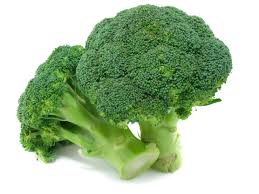 copper. Also, broccoli helps lower your levels of estrogen since it contains a substance called indole-3-carbinol which acts as a broom that sweeps excess estrogen away.
copper. Also, broccoli helps lower your levels of estrogen since it contains a substance called indole-3-carbinol which acts as a broom that sweeps excess estrogen away.Beets. This red vegetable is full of vitamins, minerals, and other nutrients that play a critical role in maintaining our bone health: betaine/betalains, folate, uridine, magnesium, copper, manganese, boron, and vitamin C. In addition to strengthening your bones, beets also provide an energy boost. No wonder beets are often referred to as "health and fitness in a jar."
Tomatoes. Tomatoes are our primary source of lycopene, a potent antioxidant that is a valuable ally for men in the battle to prevent prostate cancer. Lycopene has also been linked to a reduction in pancreatic cancer due to its dense concentration of antioxidants such as beta-carotene, vitamin C, vitamin E, and potassium, a mineral that most folks do not consume in healthy amounts.
Celery. Celery is another excellent source of vitamins, minerals, and enzymes. Also, celery is an excellent source of fiber and helps prevent dehydration.

Blueberries. Blueberries are a real nutritional powerhouse that does it all: strengthen the immune system, slow down aging, lower cholesterol, boost brainpower and support heart health. Many nutritionists feel that if you could only make one change to your diet, blueberries would be the best choice.
Pineapple. Pineapples assist digestion, are anti-inflammatory, deliver protection to your eyes and boost your immune system.
Walnuts. Walnuts are a tasty source of omega-3 fats, the so-called "healthy fats." They also contain vitamin E, folate, melatonin, and other antioxidants. Walnuts are the first choice of snacks for many people, with good reason.
Salmon. Salmon is another great source of healthy omega-3 fats, as well as lean, healthy protein, selenium, potassium, and B vitamins.
Coconut oil. Coconut oil earns its keep by helping your body convert LDL cholesterol ("The bad stuff") into HDL cholesterol ("The good stuff"). If that
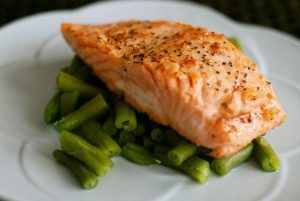 weren't enough reason to add coconut oil to your eating plan, remember that it strengthens the bones, lowers blood pressure, and helps memory.
weren't enough reason to add coconut oil to your eating plan, remember that it strengthens the bones, lowers blood pressure, and helps memory.Olive oil. Olive oil is jam-packed with antioxidants, is anti-inflammatory, and may provide protection from a heart attack and stroke.
The Importance of Supplements

Regardless of how meticulous you are in your eating habits, it is tough to consistently obtain the healthy level of both probiotics and prebiotics needed to keep the lid on inflammation.
In addition to probiotic and prebiotic supplementation, also consider taking the following:
Fish oil. This powerhouse nutrient can deliver a wide variety of benefits: ease joint aches and pains, fight depression and exhibit a potent anti-inflammatory effect on the heart; strong enough that the vast majority of cardiologists agree that fish oil is a useful supplement.
Curcumin. This miraculous substance can simultaneously attack several inflammatory areas, including the joints that are pain-wracked from arthritis. Studies have shown that curcumin has been demonstrated to inhibit the molecule NF-kB. Why is this important? Because this molecule is the “switch” that turns on the inflammation gene once it crawls directly into the nuclei of your cells. This knocks out inflammation at the cellular level before it can escape and wreak serious havoc.
Resveratrol. Another hard-working supplement that protects you in many ways, including suppressing inflammation. Resveratrol can assist the T-cells that control your immune system. When these cells fatigue and fail to maintain constant vigilance, inflammation can run wild. As an added benefit, resveratrol works synergistically with curcumin...a dynamic “tag-team”!
Vitamins C and E, a long with Boswellia, CoQ10, Bioflavonoids, Licorice, and Milk Thistle are all proven anti-inflammatory agents that should not be overlooked.
Don’t Forget the Value of Water
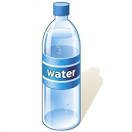
Dehydration affects every single aspect of your body in an unhealthy way. And that includes inflammation. When you are suffering from inflammation, not drinking enough water makes a bad situation worse...far worse.
Dehydration can lead to weight gain, which can lead to diabetes, which can lead to more inflammation. Stop this vicious circle before it gets going. Don’t forget to stay hydrated.
Remember, inflammation is there for a reason, and in proper amounts, it is a lifesaver.
But when it runs amok, the door is wide open for a parade of health problems that you don’t need. Make these ideas you have just learned a part of your healthy routine.
Growth hormone replacement and controlling inflammation = super health!
Contact us for a FREE, no-obligation discussion of the benefits of growth hormone therapy.
References
Anti-Inflammatory Diet 101: How to Reduce Inflammation Naturally
Contact Us Today For A Free Consultation
Dear Patient,
Once you have completing the above contact form, for security purposes and confirmation, please confirm your information by calling us.
Please call now: 1-800-380-5339.
Welcoming You To Our Clinic, Professor Tom Henderson.

- Obese Patients Have a Higher COVID-19 Mortality Risk Than the General Public [Last Updated On: January 24th, 2025] [Originally Added On: August 21st, 2020]
- The Health and Hormone Balancing Qualities of Broccoli [Last Updated On: July 10th, 2024] [Originally Added On: August 27th, 2020]
- What to eat to boost testosterone [Last Updated On: August 13th, 2024] [Originally Added On: December 14th, 2020]
- Breaking a Weight Loss Plateau: How to Reduce Body Fat When Nothing Seems to be Working [Last Updated On: January 20th, 2025] [Originally Added On: February 16th, 2021]
- The Top 25 Most Nourishing and Sustaining Foods to Add to Your Diet Today for Increased Longevity [Last Updated On: January 16th, 2025] [Originally Added On: February 16th, 2021]
- Fight Inflammation and Osteoporosis with Beets! [Last Updated On: January 14th, 2025] [Originally Added On: February 18th, 2021]
- Break a Weight Loss Plateau with Apple Cider Vinegar [Last Updated On: January 14th, 2025] [Originally Added On: February 20th, 2021]
- An Intriguing Look into How Growth Hormone Production and Fasting are Linked [Last Updated On: January 18th, 2025] [Originally Added On: February 21st, 2021]
- Health Reasons for a Vegan Diet [Last Updated On: September 24th, 2024] [Originally Added On: April 2nd, 2021]
- Leafy Greens are Medicine for Your Gut [Last Updated On: August 27th, 2024] [Originally Added On: April 23rd, 2021]
- All Praise to the Spud -- the Delicious, Health-Giving Potato, That Is [Last Updated On: July 11th, 2024] [Originally Added On: June 1st, 2021]
- 16 Cancer-Causing Foods to Avoid [Last Updated On: June 12th, 2024] [Originally Added On: August 12th, 2021]
- Longevity and Anti-Aging -- The Use of Flax Seed Oil [Last Updated On: May 30th, 2024] [Originally Added On: August 17th, 2021]
- Essential Amino Acids Critical to Health and Hormone Balance [Last Updated On: July 5th, 2024] [Originally Added On: October 6th, 2021]
- Growth Hormone and Calcium [Last Updated On: January 11th, 2025] [Originally Added On: October 16th, 2021]
- Growth Hormone and Coffee [Last Updated On: January 9th, 2025] [Originally Added On: October 19th, 2021]
- The Importance of Protein in Weight Loss and Testosterone Production [Last Updated On: January 19th, 2025] [Originally Added On: October 19th, 2021]
- Testosterone, Growth Hormone, and Sugar. [Last Updated On: January 9th, 2025] [Originally Added On: October 19th, 2021]
- Testosterone, Growth Hormone, and Processed Meat [Last Updated On: January 8th, 2025] [Originally Added On: October 19th, 2021]
- Growth Hormone and Intermittent Fasting [Last Updated On: January 7th, 2025] [Originally Added On: October 19th, 2021]
- Growth Hormone and the Importance of Nutrition [Last Updated On: January 7th, 2025] [Originally Added On: October 20th, 2021]
- Growth Hormone and Sugar Addiction [Last Updated On: January 4th, 2025] [Originally Added On: October 20th, 2021]
- Growth Hormone and Red Meat [Last Updated On: January 5th, 2025] [Originally Added On: October 20th, 2021]
- Boost Growth Hormone with Sleep [Last Updated On: June 11th, 2024] [Originally Added On: October 20th, 2021]
- A Natural Acid Found in Apples Prevents Muscle Loss AKA Sarcopenia [Last Updated On: January 10th, 2025] [Originally Added On: October 20th, 2021]
- Growth Hormone and Organic Foods. [Last Updated On: January 3rd, 2025] [Originally Added On: October 21st, 2021]
- Growth Hormone and Acidosis [Last Updated On: January 5th, 2025] [Originally Added On: October 21st, 2021]
- Growth Hormone Food Choices [Last Updated On: January 2nd, 2025] [Originally Added On: October 21st, 2021]
- Growth Hormone and Cholesterol: the Surprising Link [Last Updated On: January 6th, 2025] [Originally Added On: October 22nd, 2021]
- Growth Hormone and Weight Loss [Last Updated On: January 3rd, 2025] [Originally Added On: October 22nd, 2021]
- Growth Hormone Reduces Inflammation [Last Updated On: January 4th, 2025] [Originally Added On: October 24th, 2021]
- What You Eat Impacts Both Your Sleep AND Your Growth Hormone Production [Last Updated On: January 10th, 2025] [Originally Added On: October 24th, 2021]
- Growth Hormone Lowers Blood Sugar [Last Updated On: January 6th, 2025] [Originally Added On: October 24th, 2021]
- Testosterone and Magnesium [Last Updated On: June 13th, 2024] [Originally Added On: April 28th, 2022]
- The Beneficial Functions of Brown Fat vs. White Fat [Last Updated On: June 17th, 2024] [Originally Added On: May 3rd, 2022]
- MOTS-c Peptide for Weight Loss and Muscle Building [Last Updated On: July 3rd, 2024] [Originally Added On: November 7th, 2022]
- Looking to lose weight? Add this ingredient to meals [Last Updated On: August 24th, 2024] [Originally Added On: December 7th, 2022]
- The many health benefits of black tea [Last Updated On: August 23rd, 2024] [Originally Added On: December 13th, 2022]
- Raw Food Benefits [Last Updated On: August 20th, 2024] [Originally Added On: January 18th, 2023]
- Brain Foods that Work Together with HGH to Improve Mental Sharpness [Last Updated On: February 14th, 2025] [Originally Added On: March 9th, 2024]

